Lying on my comfortable couch watching European travel vlogs on my phone, I often found myself daydreaming: wouldn't it be amazing if I could one day wander the streets of Europe with just a backpack? This dream might seem distant, but as someone from the 90s generation who just completed a 30-day in-depth European tour, I want to tell you seriously - it's not that difficult! Once you have the courage to take the first step, the rest will fall into place with time.
Of course, while a spontaneous trip sounds romantic, thorough preparation is essential before setting out. After all, no one wants to travel all the way abroad only to have their experience affected by inadequate preparation, right? Let me share with you, from start to finish, this spontaneous yet unexpectedly rewarding European journey.
It was late one night last December, during Beijing's bone-chilling winter. Curled up in bed scrolling through my phone, I came across a travel vlogger's European content. The vlogger was in Venice's St. Mark's Square, with flocks of pigeons soaring freely among ancient buildings, while the bell tower gleamed golden in the sunset. At that moment, I suddenly realized: if I don't fulfill this dream now, it will only become harder later.
After two years of work, it was rare to have the opportunity to take a month-long vacation. In a few more years, I might be burdened by mortgages, car loans, marriage, children, and other real-life concerns, with dreams of travel replaced by daily necessities. Early the next morning, I began preparing for this journey. From requesting leave to planning routes and booking flights, all the preparations got my blood pumping.
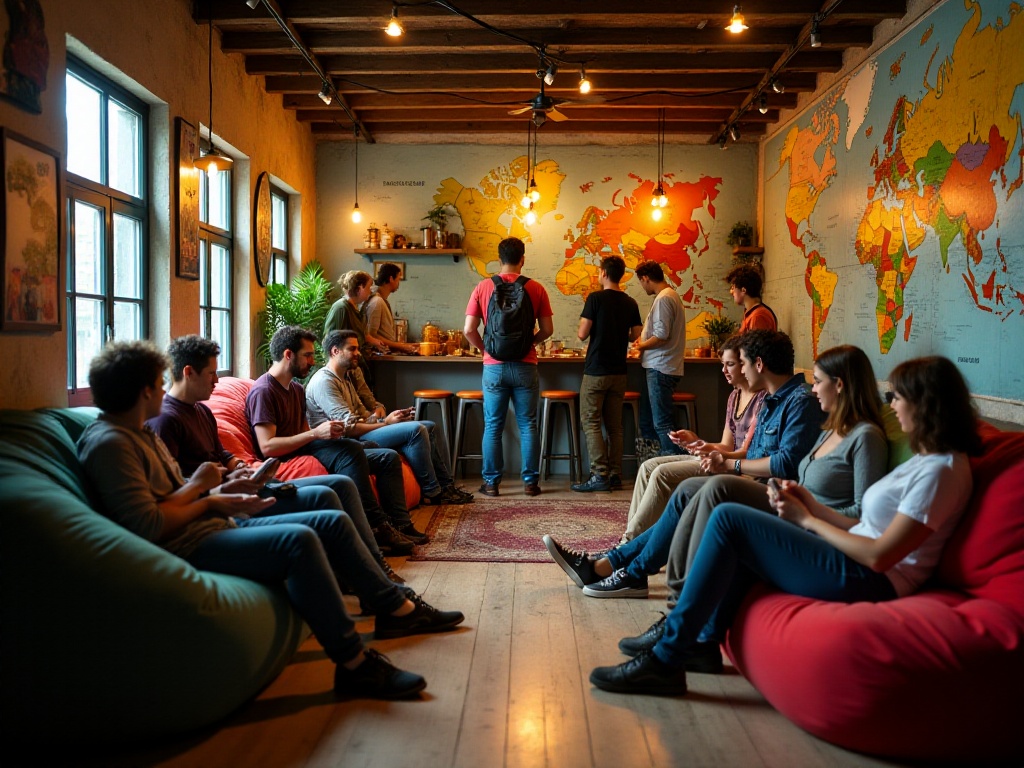
The preparation work was both complex and simple. Complex because there were so many details to consider, simple because all these issues could be resolved one by one with enough effort.
First was the budget issue. I took out my calculator and carefully calculated the expenses for this trip. Round-trip flights would cost about 8,000 yuan, accommodation at 150-200 yuan per night would come to about 5,000 yuan for 30 days. Adding inter-city transportation costs, daily meals, attraction tickets, etc., I set a total budget of 35,000 yuan. While this might seem like a lot, remember this is for a whole month of in-depth travel! Averaging just over 1,000 yuan per day in expensive Europe was actually quite economical.
Next came route planning. My route was Amsterdam-Brussels-Paris-Zurich-Munich-Prague-Vienna-Venice-Rome. Why this route? Because it not only connected the cities I most wanted to visit but also had super convenient train connections. Looking at the map, the route formed a beautiful arc, avoiding backtracking and wasting time and money on returns.
While planning the route, I paid special attention to the time spent in each city. For major cities like Paris and Rome, I allocated 4-5 days, allowing enough time to both visit attractions and experience local life. For relatively smaller cities like Brussels, 2-3 days was sufficient.
The visa process was a major undertaking but not as scary as imagined. I chose to apply for a French visa first since I would spend the most time in France. It's important to be thorough with the documentation - I even made several copies of each document just in case. In the end, the visa came through smoothly, which boosted my confidence.
Regarding equipment selection, I learned some hard lessons. The first time I tried packing, I wanted to stuff my entire wardrobe into my backpack. Just looking at that "mountain" of stuff made my back ache. Later I understood that for backpackers, "traveling light" is the most important principle.
After repeated filtering and elimination, I finally settled on just a 40L backpack. While this might seem small, it was actually completely adequate. My packing list was: 4 changes of clothes (2 short-sleeve, 2 long-sleeve shirts), 1 pair of jeans, 1 pair of track pants, 1 light jacket, 4 pairs of underwear, 4 pairs of socks, 1 pair of comfortable sneakers, 1 set of toiletries, 1 power bank, 1 power adapter, and 1 passport.
Many worry about not having enough clothes, but doing laundry in Europe is actually very convenient. Almost every hostel has a laundry room that operates with coins. One load of laundry costs just 5-8 euros, even for washing all your clothes. Plus, many hostel laundry rooms have dryers, so you don't need to worry about clothes not drying in bad weather.
I also specifically prepared a small messenger bag for valuables. Important items like passport, cash, and bank cards went in this bag to carry with me at all times. This way, even if my backpack was lost (though unlikely), the most important items would still be safe.
Accommodation is one of the biggest concerns for every backpacker. During this trip, I stayed in over 20 hostels, with prices ranging from 15 to 35 euros. The most expensive was in central Paris at 35 euros per night, but its location was irresistible - walking distance to the Louvre.
I have a few tips for choosing hostels. First, check the rating - always choose places rated above 8.5. Then look at location, preferably close to metro stations and main attractions. Finally, check facilities, particularly whether they offer free breakfast, have a communal kitchen, and provide free WiFi.
To be honest, I was a bit worried about staying in hostels at first. But once I actually stayed in them, I realized these worries were completely unnecessary. Most hostels have good security measures, with individual lockers for each bed equipped with combination locks. Plus, the biggest advantage of hostels is meeting travelers from around the world. Sometimes in the evening, everyone would gather in common areas to chat and share their travel experiences - something you'd never get in a hotel.
At the hostel in Paris, I met a pair of sisters from Australia. They had been traveling in Europe for three months and shared many practical travel tips. Like which museums have free admission times and which restaurants offer good value - information that's hard to find online.
Europe's transportation system seems perfectly designed for backpackers. Before departure, I bought a Eurail Pass for 297 euros, allowing 7 train rides within 30 days. While this price might seem steep at first glance, when you break it down per journey, it's actually very economical.
The biggest advantage of the Eurail Pass is its flexibility. Except for a few high-speed trains that require advance seat reservations, you can board most trains anytime. This means if you suddenly want to stay an extra day or leave early, it's no problem at all.
Within cities, I mainly relied on metro and walking. Most European cities have very developed metro systems, and many offer 24-hour, 48-hour, or 72-hour passes that are much cheaper than single tickets. In Paris, for example, I bought a 5-day pass that allowed unlimited metro and bus rides, which was very convenient.
Walking is the best way to experience a city. In Venice, I didn't use any transportation at all, purely exploring the alleys on foot. While I sometimes got lost, these "mistakes" led me to discover many unexpected beautiful scenes. At an unremarkable corner, I found a century-old shop; in a secluded alley, I met an old artist painting.
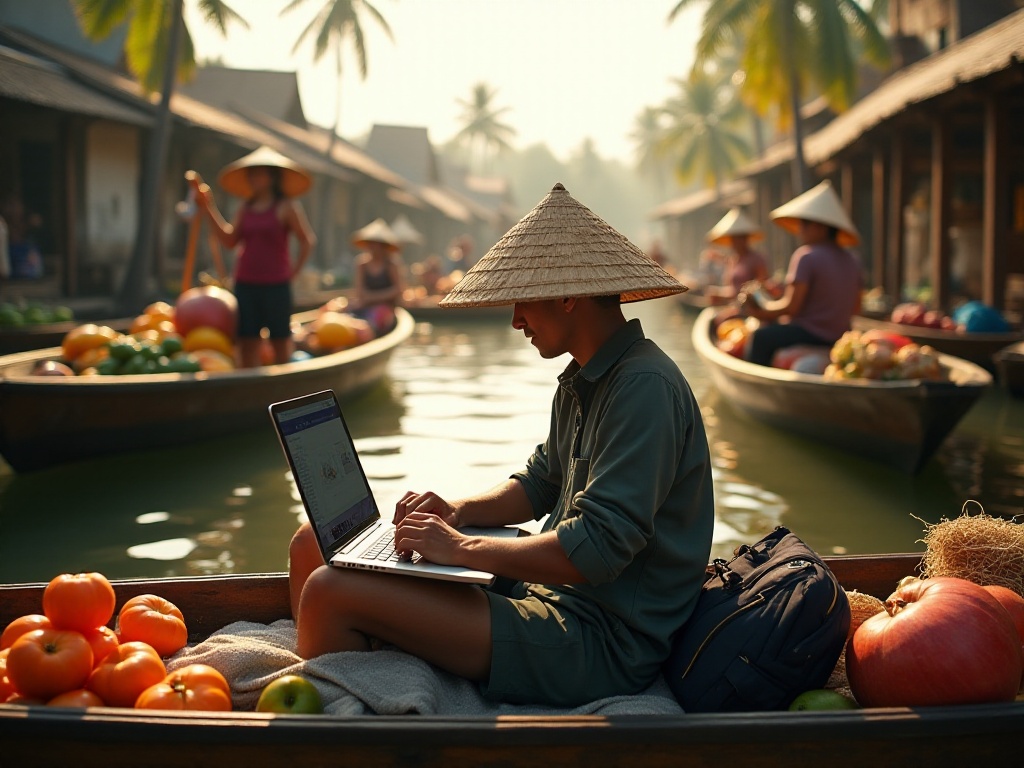
Many think eating in Europe is expensive, but if you know how to budget carefully, you can eat well on very little. My dining strategy was: breakfast at the hostel, lunch from supermarkets, and only going to restaurants for dinner.
Most hostels provide free breakfast, and while it might just be bread, jam, and coffee, it's enough to fill you up. Plus, European bread is really delicious - paired with a hot coffee, it's no worse than a restaurant breakfast.
For lunch, I usually went to supermarkets. European supermarkets have many ready-to-eat foods - sandwiches, salads, fruits are all fresh. You can solve lunch for 5-6 euros. Sometimes I'd buy bread, ham, cheese and such, find a park or square to sit and eat while enjoying the scenery - it was particularly pleasant.
For dinner, I would choose local restaurants. To save money, I usually avoided tourist area restaurants and found places where locals go. These restaurants are not only more affordable but also serve more authentic food. In Prague, I found a Czech restaurant hidden in an alley where their roasted pork knuckle was only 12 euros and enough for two people.
In Rome, I even found a pizzeria where you could get an authentic Neapolitan pizza for just 6 euros. The owner was a friendly Italian who, upon learning I was a backpacker from China, even added extra toppings.
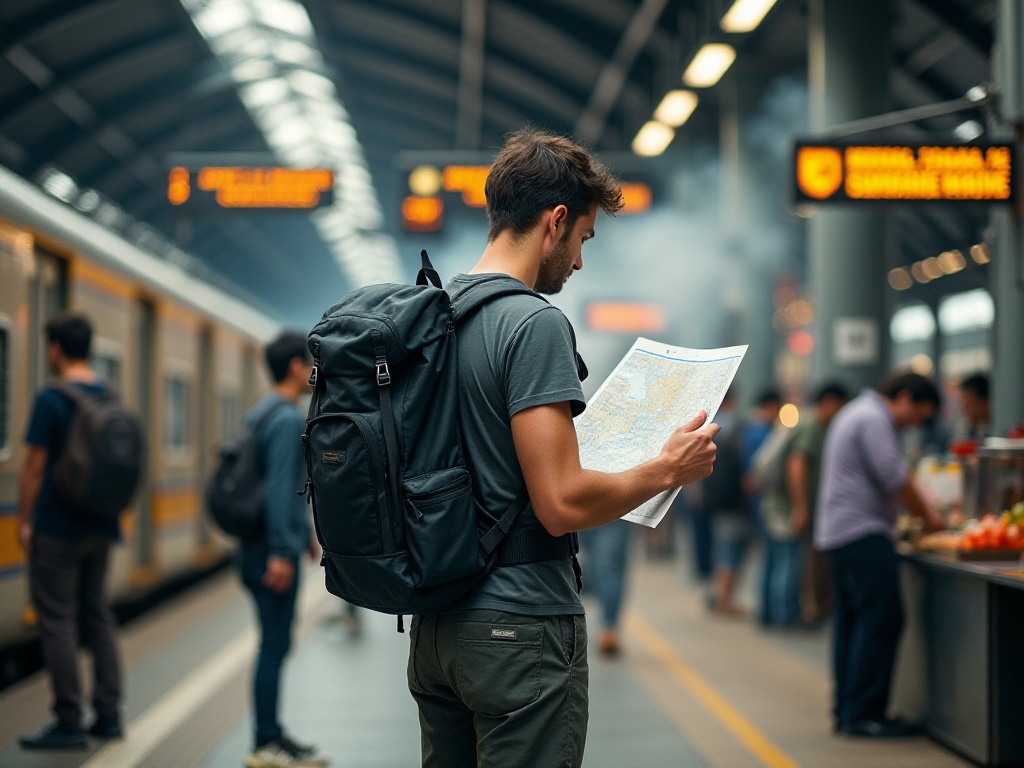
What I remember most isn't the famous attractions, but interactions with locals. In Prague, I met a Czech elderly gentleman. I was taking photos on Charles Bridge when he came over to chat. Though his English wasn't great, we had a wonderful conversation. Later he took me to a local beer house where beer was only 1 euro per glass, tasting much better than in tourist areas.
In Vienna, I attended a free concert. It was held in a small church, performed by music academy students. Though not a famous performance, listening to Mozart's music in that sacred space felt purifying.
In Venice, I met an old craftsman making glass art. His workshop was in a secluded alley I would never have found if I hadn't gotten lost. The master allowed me to watch him work, seeing ordinary glass transform into exquisite art in his hands was truly magical.
In Paris, I often went to Luxembourg Gardens. It's not only one of Paris's most beautiful parks but also locals' favorite leisure spot. I would often bring sandwiches and coffee from the supermarket, sit on the park chairs watching elderly people play chess, children play, and young people read or draw. These most ordinary daily scenes let me experience the most authentic Paris.
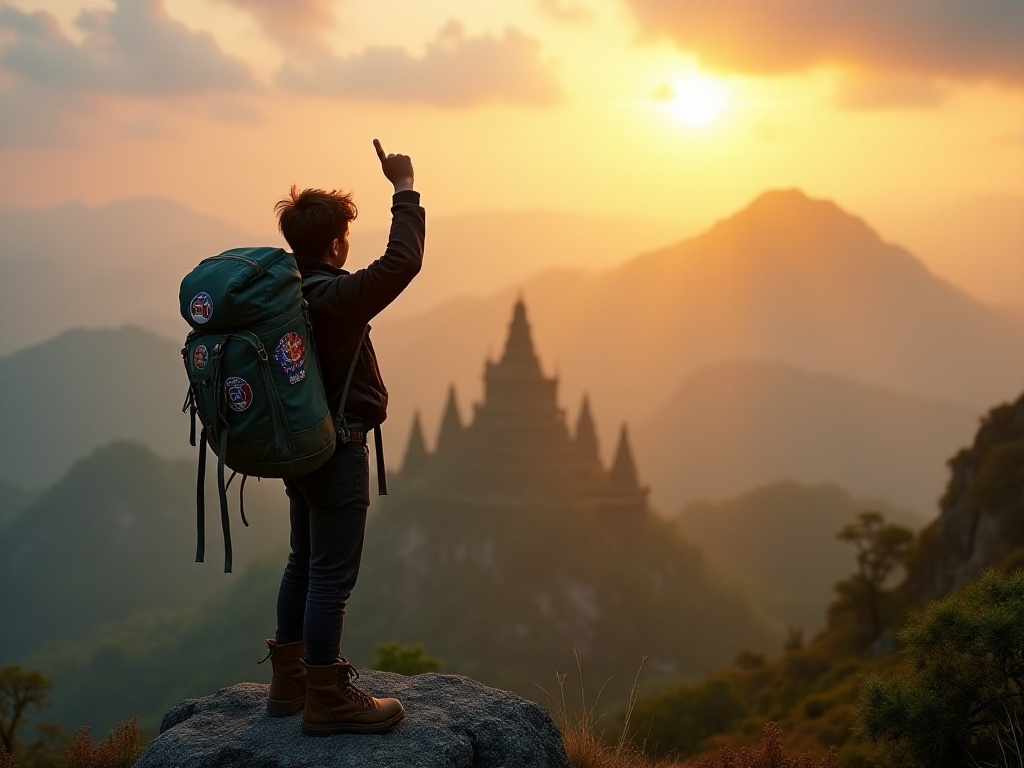
If I had to name the biggest gain from this trip, it would be learning how to budget carefully. Before departure, I did extensive research on various ways to save money.
First regarding tickets. Many museums have free admission periods, usually the first Sunday of each month or certain evenings each week. The Louvre, for example, is free on the first Sunday of each month. While it's more crowded then, it's totally manageable if you queue early.
Opera houses all have standing tickets, usually priced at one-tenth of seated tickets. At the Vienna State Opera, I bought a 4-euro standing ticket for a performance worth 200 euros. Though standing for nearly three hours was tiring, experiencing world-class opera was worth the discomfort.
Many cities offer free walking tours. These tours are usually led by local university students or history enthusiasts, and though free, the quality isn't compromised. The guides are enthusiastic, introducing the history and stories of each attraction in detail, and sharing secrets only locals know. Of course, if you think the tour was good, leaving a tip is normal.
For transportation, besides buying passes, I often used bike-sharing. Many European cities have well-developed bike-sharing systems at reasonable prices. In Amsterdam, I cycled almost every day, not only saving on transportation but experiencing the city like a local.
Of course, there were some unexpected incidents during the trip. In Rome, my phone was stolen. I panicked at that moment because the phone contained lots of important information. But this incident actually led to a memorable experience.
When reporting to the police, I met a German couple who were also there to file a report. Despite the language barrier, we quickly became friendly. They later helped me contact the consulate and invited me to dinner at their rental apartment. That evening, we talked a lot, sharing our travel stories. Before leaving, they gave me a travel diary, hoping I would record every detail of this journey.
In Zurich, I almost ended up sleeping on the streets because I hadn't booked accommodation in advance. That day I walked to every hostel in the city center, all showing full occupancy. Just when I was at a loss, I met a Chinese international student. Upon learning of my predicament, she immediately invited me to stay at her place for the night. That night, we stayed up talking, sharing our life experiences and future plans. We still keep in touch, and she says she wants to do a similar backpacking trip after graduation.
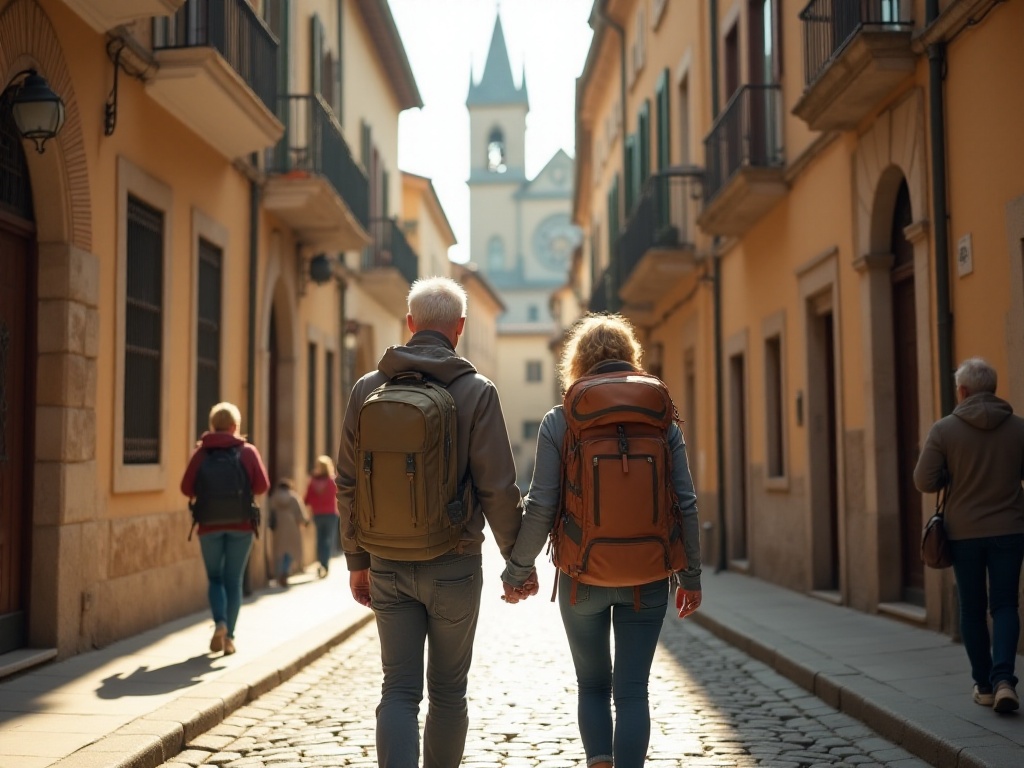
Looking back on these 30 days, there was laughter, tears, confusion, and enlightenment. But most importantly, I finally understood why so many people say backpacking can change a person. It's not just a journey, but a process of self-discovery and growth.
In these 30 days, I learned to live independently, solve problems, communicate with strangers, and appreciate different cultures and lifestyles. Each city left me with unique memories, and each encounter gave me new insights into this world.
Looking back now, that late-night decision was one of the best decisions of my life. If you have a similar dream, my advice is: prepare thoroughly, then go for it. You might encounter various problems along the way, but that's the charm of backpacking. After all, isn't the greatest meaning of travel discovering a better version of yourself through solving problems?
So, if you're hesitating about starting your backpacking journey, I want to say: just do it! Maybe you're not fully prepared right now, but once you take the first step, the rest of the path will gradually become clear. After all, aren't life's most beautiful moments found on the path of chasing dreams?
 Previous
Previous